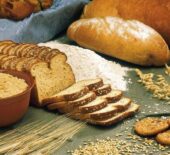PCOS stands for polycystic ovary syndrome which is when the little eggs which do not fully become mature enough for ovulation. This is a complex hormonal syndrome which needs to be done by your doctor. Including amenorrhea which is too infrequent or more than 35 days apart or oligomenorrhea which means too frequent which is less than 21 days apart. Also, acne, hair loss or excess growth due to high androgens. Finally, having a polycystic ovary or cystic appearance on your ovary.
Women with PCOS often find it hard to be a healthy weight. It is important to understand this is not your fault but the hormones which are not on your side to be a healthy weight. It is important there is no one single diet approach which assists all women. Your diet needs to be individualized and emphasizing the need to seek support from and Accredited Practising Dietitian.
It is important to start lifelong strategies as this is a chronic condition which increases your risk of other conditions like insulin resistance, diabetes, heart disease and high cholesterol if not appropriately managed.
Here are 5 tips to help manage PCOS through nutrition:
Keep gluten
Unless you have celiac disease or are gluten intolerant there is no need to remove gluten. There is not one single study that shows gluten has a harmful effect on PCOS. A diet which includes gluten has been shown to have more fibre which is important for hormone function, more iodine and folate to mention only a few nutrition benefits.
Love your legumes
Legumes are full of fibre, B vitamins, plant-based iron, zinc, and protein. They also have a phytoestrogen called genistein which helps reduce testosterone. The fibre found in legumes is important as it helps reduce cholesterol levels due to the soluble type of fibre.
Do not break up with carbs
Bread is not the devil and PCOS does not warrant a low carbohydrate diet. It is the quality of carbohydrates which matter here so whole grains, legumes, nuts and seeds and dairy are all quality foods. Spread out your carbohydrates over the day which gives insulin a chance to work well and helps with regulating your mood, so you do not become a hangry monster.
Dairy is your friend
There is a common misconception you need to remove dairy from your diet. This is not the case for all women, unless you are removing dairy due to intolerance or allergy or ethical reasons. Dairy is a nutrient rich food which is a fantastic source of both protein and carbohydrates.
Add healthy fats, lean protein and/or fibre to your meal.
This will help keep you feeling fuller for longer and helps prevent the blood sugar crashes.
Take home message: You are not alone if you are dealing with a PCOS diagnosis. Seek the guidance you need to set yourself lifelong habits which will keep your body healthy for life.








